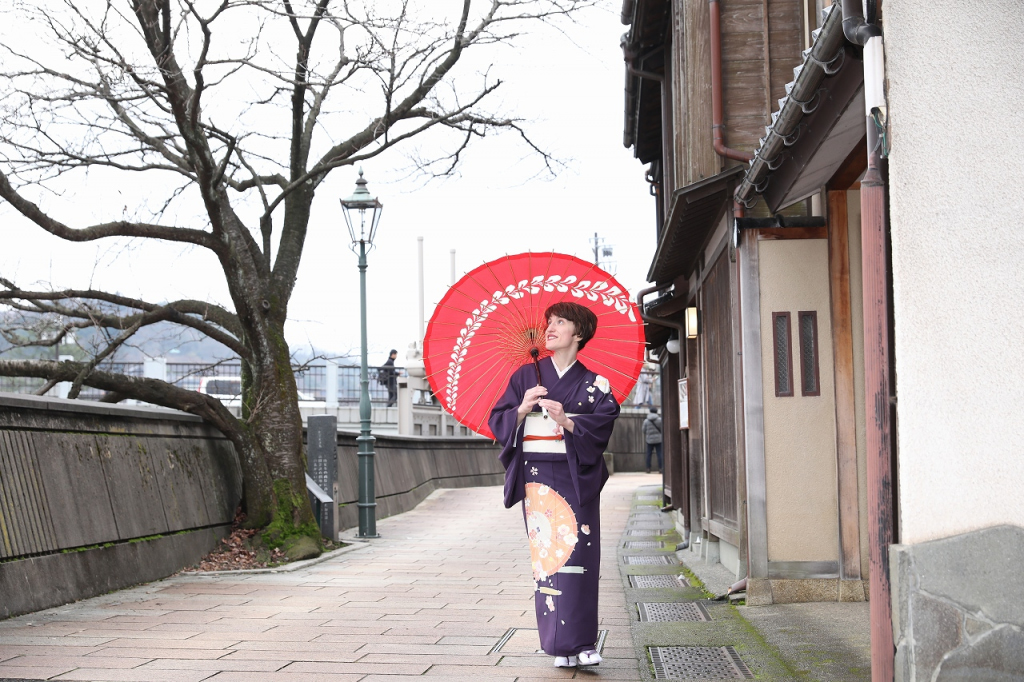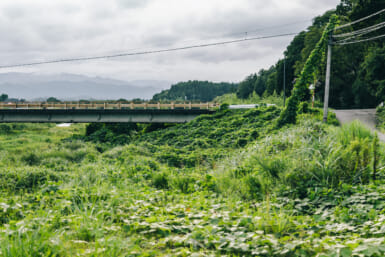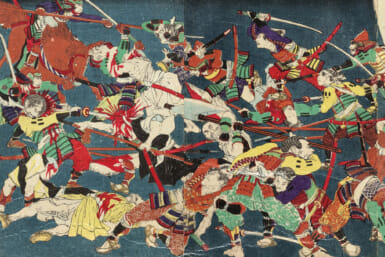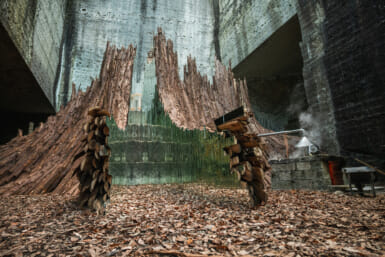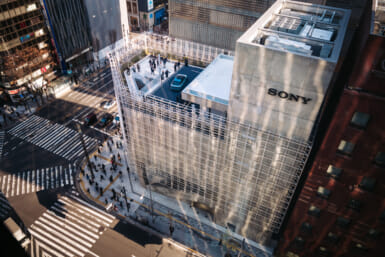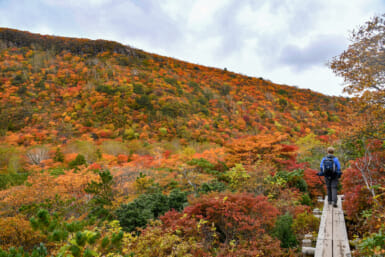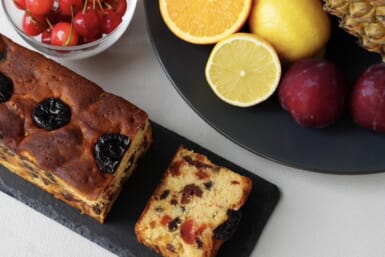The venerated city of Kanazawa in northern Honshu’s Chubu region is easily accessible from Tokyo via the Hokuriku Shinkansen and offers visitors a wealth of history to explore.
Once the domain of the powerful Maeda clan, its legendary riches enabled the Maeda lords to invest heavily in local arts such as Kaga Yuzen dyeing, Kutani ceramics, lacquerware and gold leaf. The Maeda clan and Kanazawa castle also supported a large number of samurai (which can be experienced in the Nagamachi Samurai District) and three separate well-preserved tea districts that are still home to practicing geisha (called “geigi” in local dialect). Kanazawa also boasts one of Japan’s three great classical gardens, Kenrokuen, that is beautiful in any season.
On my most recent visit, I had the chance to experience a different side of this historic city through a hands-on cooking class and spent the day exploring Kanazawa’s charms wearing a hand-dyed Kaga Yuzen kimono.
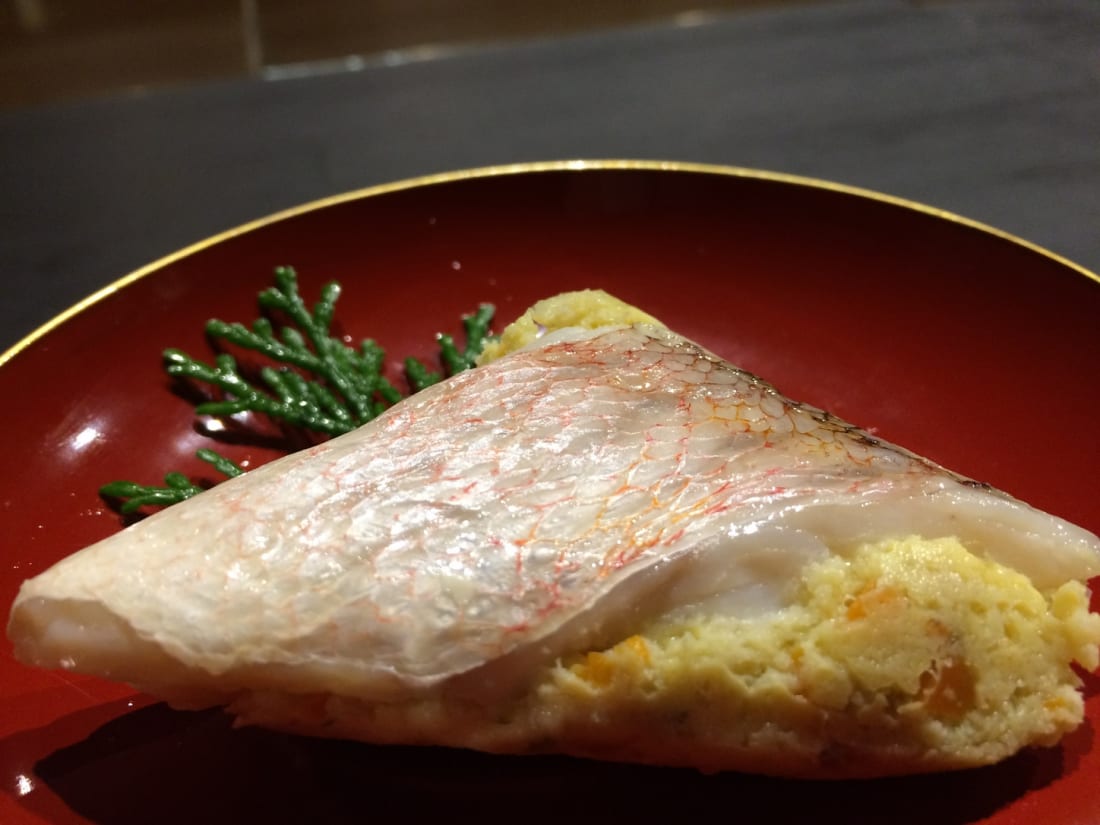
Photo: Sarah B. Hodge
Master Japan’s Most Mysterious Ingredient
At Cooking Studio Kanazawa Salon instructors Moe and Chikako host koji-based cooking classes and market tours from their cozy restored machiya (traditional townhouse). The koji cooking course runs 3.5-4 hours and includes welcome drinks, a presentation about koji and a customizable hands-on menu of six dishes, including traditional local dishes such as jibuni, a rich stew made from duck and vegetables. Vegetarian and vegan menus are also available.
Koji has been cultivated in Japan since ancient times and this humble rice fungus (Aspergillus oryzae) is responsible for some of Japan’s most iconic flavors such as sake, soy sauce, mirin and miso. Koji releases powerful enzymes called proteases and amylases that break down proteins and convert grain into sugar. It makes an excellent tenderizer for meat (it is catching on with Western chefs as a way to quickly dry-age meats) and lends unique properties and flavor profiles to any dish from sweet to savory.

Photo: Sarah B. Hodge
Moe and Chikako are passionate about koji and this love shines through in their well-crafted introduction to koji and through each of the dishes prepared together. Once a booming trade, traditional koji producers are becoming fewer and fewer in Japan and it is Cooking Studio Kanazawa Salon’s mission to revitalize koji cuisine.
Using local organic Kaga vegetables, we prepared a feast including dashimaki, temari sushi, hasumushi, salad with koji dressing and jibuni made with seared slices of Kanazawa specialty fu (raw wheat gluten) in place of duck. The food was incredible, but even more special was the chance to spend an evening with two passionate ambassadors of local cuisine and traditional foodways.
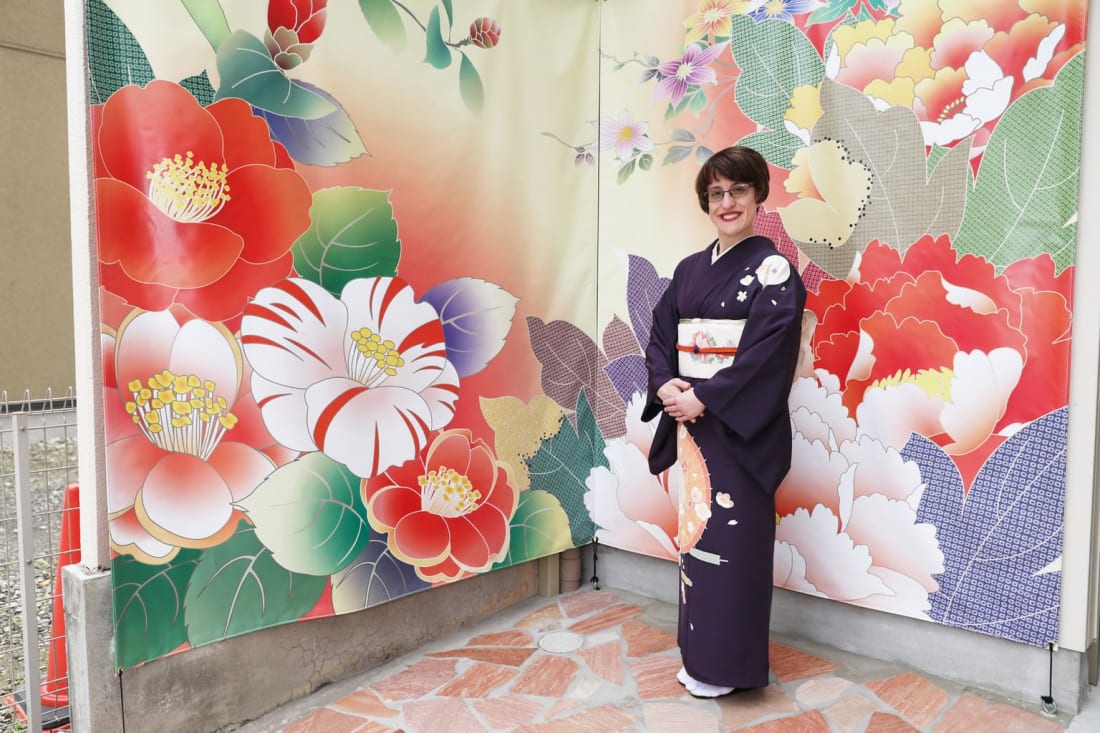
Photo: Keiichi Shinmura
Wearing Kimono Means Wearing a Smile
Kokoyui Kimomo Rental is a convenient 5-minute walk from Kanazawa Station. Opened in May 2010, owner Haruka Koshida felt that wearing a kimono is a transformative experience that brings the wearer happiness and she wanted to share that joy with others.
With a large selection of over 800 kimonos, Kokoyui’s staff will take care of all of the details to make your kimono rental experience a memorable one, including hairstyling and the loan of kimono coats, umbrellas, bags and accessories. They also offer additional services such as a photography package, a licensed guide, interpreters and a koto and tea ceremony experience.
Kokoyui promotes local Kanazawa and Noto craftsmanship by renting premium quality Kaga Yuzen and Notojofu kimonos. Kaga Yuzen is prized for its distinctive use of color and highly realistic details. The technique dates back 500 years and flourished in Kanazawa under the Kaga feudal lords. Kaga Yuzen dyeing is a lengthy multistep process and the resulting silk kimonos are wearable works of art, making it a very special experience to wear one for a day. Notojofu is a premium woven fabric similar to hemp that is lightweight and breathable, making it a perfect choice for summer.

Photo: Keiichi Shinmura
During my visit, Ms. Koshida personally assisted me in choosing a gorgeous purple Kaga Yuzen kimono and coordinating accessories, and then I had the opportunity to spend the morning with Kokoyui’s photographers Keiichi Shinmura and Mitsuhito Nakagawa on location as I visited the D.T. Suzuki Museum and the Kazuemachi Tea District.
Another wonderful feature of Kokoyui is that you can choose to return your kimono and accessories to your hotel’s front desk after hours; I ended up wearing mine to a memorable kaiseki dinner at Kotobukiya later that evening and was perfectly dressed for the occasion.
Feature photo: Mitsuhito Nakagawa

